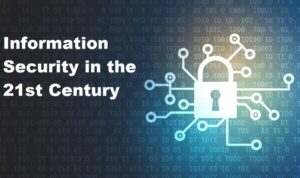
With the rapid growth of technology and the internet, digital data has become an integral part of our daily lives. We use digital data to store personal and confidential information, financial details, and other sensitive data. Unfortunately, with the ease of access to digital data, there are increasing risks of data breaches and cyberattacks. Therefore, it is crucial to protect our data from unauthorized access, theft, and misuse. This article will discuss strategies for protecting your data in a digital world.
Why is Information Security Important?
Information security is vital to protecting your personal and confidential information from cybercriminals who seek to exploit your data for their own gain. Data breaches and cyber-attacks can result in financial losses, reputational damage, and legal implications. Therefore, investing in information security measures is essential to safeguard your data and minimize the risks of cyber-attacks.
Strategies for Protecting Your Data
1. Use Strong Passwords
One of the most basic yet effective strategies for protecting your data is to use strong passwords. Weak passwords make it easy for hackers to gain access to your accounts and steal your data. A strong password should contain a combination of upper and lower case letters, numbers, and special characters. Additionally, you should avoid using the same password for multiple accounts and change your passwords regularly.
2. Update Your Software
Software updates often contain security patches that fix vulnerabilities that cybercriminals can exploit. Therefore, it is crucial to keep your software up-to-date to minimize the risks of cyber-attacks. This applies not only to your operating system but also to your antivirus software, firewalls, and other security software.
3. Use Two-Factor Authentication
Two-factor authentication (2FA) adds an extra layer of security to your accounts by requiring a second form of authentication, such as a code sent to your phone, in addition to your password. This makes it more difficult for hackers to gain access to your accounts, even if they have your password.
4. Backup Your Data
Backing up your data is an essential strategy for protecting your data in the event of a cyberattack or data loss. This can be done by regularly backing up your data to an external hard drive or cloud-based storage service. This ensures that you have a copy of your data in case your computer is compromised.
5. Educate Yourself
One of the most important strategies for protecting your data is to educate yourself on the risks of cyberattacks and how to prevent them. This includes being aware of phishing scams, avoiding suspicious websites, and recognizing suspicious emails. Additionally, you should ensure that your employees or family members are also aware of the risks and are taking the necessary precautions to protect their data.
FAQs
What is a data breach?
A data breach is a security incident in which sensitive, protected, or confidential data is accessed, viewed, or stolen by an unauthorized individual.
How do I know if I have been hacked?
Signs of a hack may include unusual activity on your accounts, unfamiliar programs or files on your computer, or unexpected pop-ups or messages.
What is phishing?
Phishing is a type of social engineering attack in which hackers attempt to trick individuals into revealing personal information, such as login credentials or financial information.
Can antivirus software prevent all cyber-attacks?
While antivirus software can detect and prevent many types of cyberattacks, it cannot prevent them all. Therefore, it is essential to use other security measures, such as two-factor authentication and strong passwords.
Conclusion
In conclusion, protecting your digital information is crucial in today’s world where cyber attacks are on the rise. By following simple yet effective practices such as using strong passwords, updating your software, using two-factor authentication, backing up your data, and educating yourself on the latest security measures, you can significantly reduce the risk of falling victim to cybercrime. These measures may seem basic, but they are essential for maintaining the security and privacy of your online activities. Remember, prevention is better than cure, and investing in your digital security can save you a lot of trouble in the long run.


